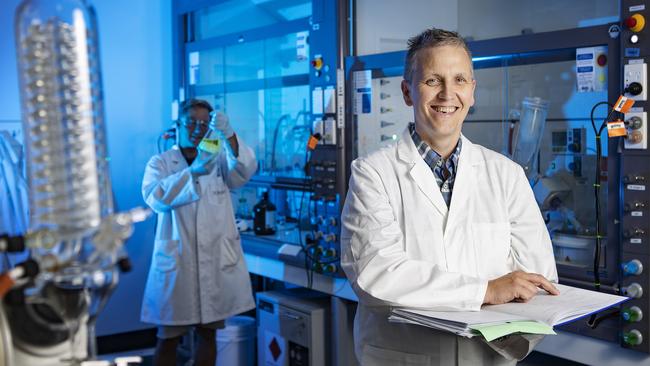Universities combine to join RNA technology race
RNA technology is the cutting-edge technology researchers need to work with to drive advances in health and medicine.

Australian universities are boosting their research into the cutting-edge RNA technology that produced some Covid-19 vaccines to exploit its potential on several fronts, including but not confined to vaccines.
All of NSW’s universities have collaborated to create the NSW RNA Bioscience Alliance, which immediately has scored $15m from the Berejiklian government to fund its NSW RNA Production and Research Network. The University of NSW Sydney has gone a step further by allocating $25m to its own UNSW RNA Institute, which will work with the alliance and the network, to tackle global challenges in RNA chemistry, biology and medicine.
“The potential of RNA technologies and treatments is enormous, not just to address current and future pandemics but to treat cancer, genetic mutations and auto-immune disease,” UNSW vice-chancellor Ian Jacobs said.
Institute director Pall Thordarson, an expert in nanomedicine and synthetic chemistry, welcomed the rise of the “RNA ecosystem, both globally and here in Australia”.
“We’ve been watching the potential that RNA has for many years,” Professor Thordarson said.
“Now is the right time to bring together … people from science, engineering and medicine into this new institute that will provide both materials to people who are working in that space and support the translation of basic research towards clinical research.”
In Victoria, the University of Melbourne’s Doherty Institute and Monash University’s Monash Institute of Pharmaceutical Sciences have received $5m to manufacture a vaccine candidate for clinical trials from the state government’s mRNA Victoria.
This agency was established in May with a $50m investment and charged with establishing a commercial-scale mRNA manufacturing capability.
A manufacturing hub is also on the cards in South Australia, where the University of Adelaide and the South Australian Health and Medical Research Institute are supporting biotechnology company BioCina’s pitch to help the federal government set up an mRNA and Covid-19 vaccine manufacturing facility. Adelaide’s deputy vice-chancellor (research) Anton Middelberg said the Adelaide facility would “act as a bridge to the whole national ecosystem”.
“The partners will provide the supporting research groups, underpinning what they are going to do in a manufacturing sense,” Professor Middelberg said of the enterprise.
Australia is recovering from a vaccine shortage compounded by the lack of a local manufacturing facility other than CSL, which has been producing the AstraZeneca’s Covid-19 vaccine.




To join the conversation, please log in. Don't have an account? Register
Join the conversation, you are commenting as Logout